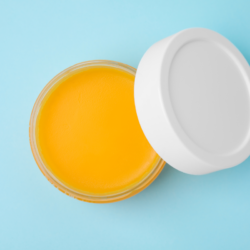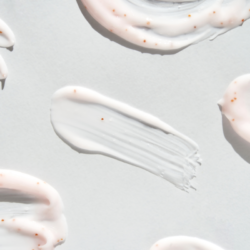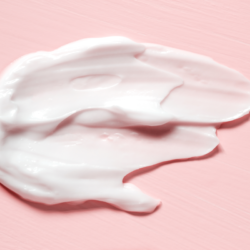A staple in our bathrooms and an essential part of our morning routine, deodorant is nowadays applied automatically. What’s more, it plays an important role in our conversations when the warm weather arrives. This cosmetic product generally contains antibacterial agents to eliminate the unpleasant body odours that emanate from our sweat. Unlike anti-perspirants, deodorants are not supposed to obstruct the perspiration process, which is a natural and healthy phenomenon.
The dangers of conventional deodorants
Most of the deodorants on the market have rather dubious ingredients that are very difficult to decipher. What’s more, they often contain ingredients that are mutagenic, carcinogenic or reprotoxic. Phthalates, for example, are suspected of causing endocrine disruption. As are parabens and silicones. Alcohol and aluminium salts are also extremely irritating, especially for sensitive skin.
In the quest for optimal personal hygiene and long-lasting freshness, many people turn to conventional deodorants. However, it is crucial to understand the potential risks associated with some of the chemical ingredients frequently used in these products.
Chemical substances commonly found in conventional deodorants
Conventional deodorants often contain aluminium compounds, which are used for their antiperspirant properties. They work by temporarily clogging pores, preventing perspiration. Other ingredients of concern include parabens, synthetic preservatives, phthalates and various types ofalcohol. Some deodorants may also contain triclosan, an antibacterial agent, and artificial colourings or synthetic fragrances.
Health risks associated with these chemicals
The use of these chemicals in conventional deodorants has raised health concerns. Aluminium salts, for example, have been linked to risks of endocrine disruption and, in some cases, to an ongoing debate about their potential link to breast cancer. Although research is still ongoing, caution suggests avoiding these compounds, especially if applied to freshly shaved or broken skin, which could make them easier to absorb.
Parabens, meanwhile, are suspected of acting as endocrine disruptors, mimicking the activity of oestrogen in the body and potentially influencing the hormonal system. Phthalates are also a cause for concern, given their ability to disrupt the hormonal system and be linked to reproductive problems.
In addition, the use of triclosan in personal care products has been called into question due to its potential contribution to antibiotic resistance and its impact on the immune system.
Finally, the alcohols present in some deodorants can cause skin irritation, particularly in individuals with sensitive skin or conditions such as eczema. Synthetic fragrances and dyes can also cause allergic reactions in some people.
Faced with these concerns, it’s becoming essential to turn to safer alternatives. Natural deodorants, formulated without these controversial ingredients, offer a reassuring option for those who wish to maintain personal hygiene without compromising their health. By choosing products containing simple, safe ingredients, it is possible to significantly reduce exposure to potentially harmful chemicals while remaining fresh and confident throughout the day.
Healthier alternatives
Fortunately, the trend has been changing in recent years. These days, people are turning to more natural products. In fact, they prefer formulas based on active ingredients derived from nature. In short, this is the safest approach for both our health and the environment.
What’s more, homemade deodorants are becoming increasingly popular. Firstly, because the recipes are so easy to make. Secondly, because they’re made from natural products, possibly of organic origin. Antibacterial plant oils, natural absorbents, neutralisers and essential oils: every ingredient can now be chosen with care to look after our skin and the environment.
Transition phase and adjustments
The transition from a conventional deodorant to a natural one is an important step in the quest for a healthier, greener lifestyle. However, this transition may involve certain adjustments for your body.
Understanding the transition phase
When you switch to a natural deodorant, your body begins a process of adaptation. Your sweat glands, accustomed to the blocking ingredients in conventional deodorants, will gradually revert to their natural function. This transition phase can vary in length, generally from a few days to a few weeks.
During this period, it is not unusual to experience an increase in perspiration and changes in body odour. This phenomenon is normal and temporary; it reflects the skin’s detoxification process and your body’s natural regulation of perspiration.
Possible body adjustments
Here are some of the adjustments your body may undergo during this transition period:
- Increased sweating: Your body may temporarily produce more sweat. This is a natural reaction and indicates that your body is adapting to the new natural deodorant formula.
- Change in smell: The smell of your perspiration may change at first. Natural deodorants do not mask odours with strong fragrances, but work to neutralise the bacteria that cause unpleasant odours.
- Skin sensitivity: Some people may experience temporary sensitivity, especially if the natural deodorant contains bicarbonate of soda, an effective but sometimes irritating ingredient for sensitive skin.
To ease this transition, we recommend :
- Choose clothes made from natural fabrics such as cotton, which allow better ventilation.
- Stay hydrated to help the body regulate perspiration naturally.
- Gently exfoliate the underarm area to remove residue and dead skin cells, helping the natural deodorant to work more effectively.
Remember that everyone is unique, and it may be necessary to try several products before finding the natural deodorant that suits you best. With patience and understanding, this transition to a healthier, more environmentally-friendly lifestyle can be a positive and rewarding experience.
Using deodorants for hyperhydrosis
Hyperhidrosis, which is characterised by excessive and uncontrollable sweating, can be a frustrating and embarrassing problem for many people. To alleviate the symptoms of hyperhidrosis, the use of a suitable deodorant can play a crucial role. Deodorants are commonly used to mask the unwanted body odour associated with sweating. However, in the case of hyperhidrosis, the aim is to control the amount of sweat produced rather than simply to mask odours.
Antiperspirant deodorants, in particular, are formulated to reduce sweat production by temporarily blocking the sweat glands. These products generally contain aluminium salts, which act by forming a plug on the surface of the skin, reducing the amount of sweat released. It’s important to note that although antiperspirant deodorants can help control excessive sweating, they are not a permanent solution for hyperhidrosis. These products generally offer temporary relief and need to be reapplied regularly to maintain their effectiveness.
For people suffering from severe hyperhidrosis, it may be necessary to consult a doctor or dermatologist. They may recommend additional treatments, such as anticholinergic drugs, botulinum toxin injections or even surgical procedures, to help control excessive sweating on a longer-term basis.
It’s also essential to choose a deodorant that suits your skin type and doesn’t causeirritation orallergies. Fragrance-free or hypoallergenic deodorants may be preferable for people with sensitive skin.
Natural deodorants formulated for you
Today’s most committed cosmetics brands offer products developed with conscience and kindness in mind. In fact, they are increasingly aware of the health and environmental issues involved in certain formulations.
Weleda
Weleda is a committed brand that has taken nature as its source of inspiration. In fact, it offers us products exclusively derived from nature, as well as an innovative approach to health. Weleda deodorant 24 h roll-on Sea Buckthorn is an effective deodorant against unpleasant odours. Secondly, it contains 100% natural antibacterial active ingredients. This formula contains Sea Buckthorn, which is rich in oleic and linoleic acids, perfect for regenerating and smoothing the skin. In addition, distilled witch hazel water effectively soothes skin irritations. In short, this deodorant preserves the skin’s natural elimination functions. It contains no anti-perspirants or aluminium salts. Finally, it provides natural freshness for 24 hours.
Cattier
In the world of environmentally-friendly deodorants, Cattier Paris has positioned itself as a key player with its Deodorant Spray Homme Safe-Control. This product specifically targets men, offering fresh, woody fragrances while guaranteeing long-lasting protection against odours. Its aluminium salt-free formulation respects the skin and the natural perspiration process. The addition ofaloe vera adds a touch of softness, ideal for sensitive skin, while guaranteeing a feeling of freshness and comfort throughout the day.
Sanoflore
Sanoflore also stands out in this segment with its Bille 48h Organic Deodorants. Designed to respect the natural perspiration process, these deodorants are suitable for all skin types, including the most sensitive. With a 100% natural formulation and a proven 48-hour efficacy, they offer an ideal solution for those looking to combine natural skincare with performance. The range offers six unique fragrances, allowing everyone to find their ideal essence, whether for long-lasting freshness or a feeling of cleanliness and well-being.







